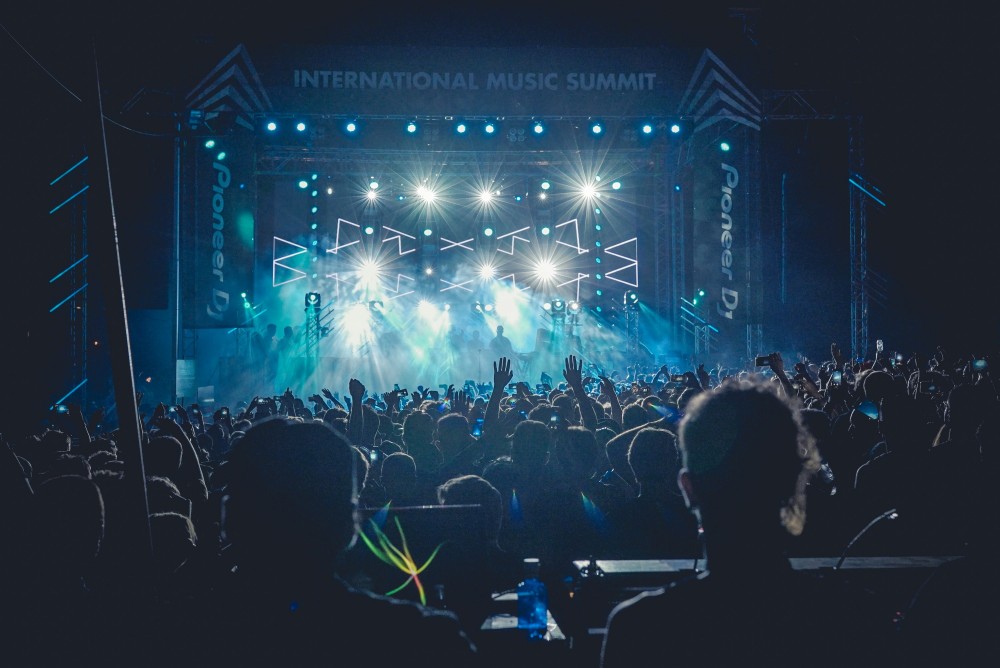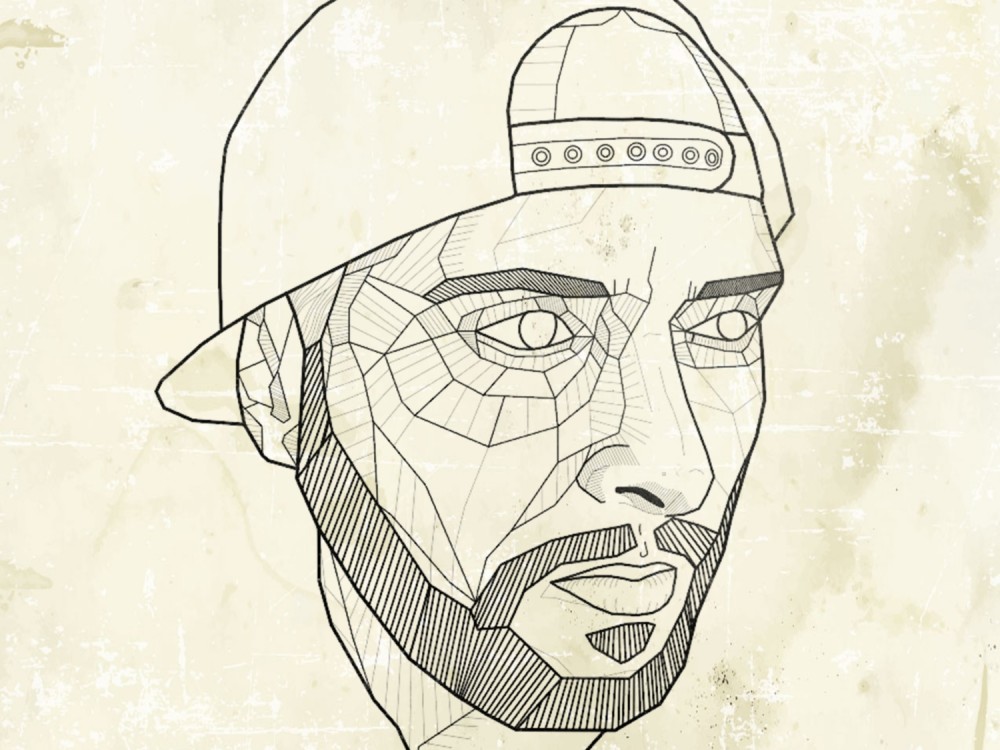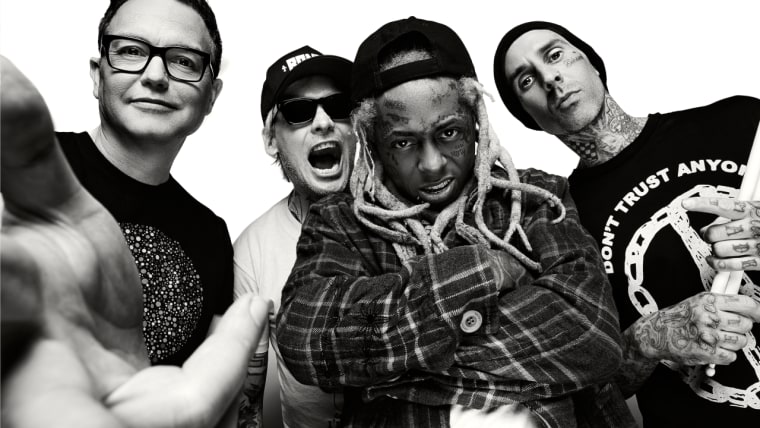
Pete Tong and David Morales talk mental health and club culture ahead of IMS Ibiza [Interview]
Photo courtesy of IMS Ibiza
IMS Ibiza, electronic music’s premier three-day conference, is leading the charge for how industry leaders and music fans alike think and talk about the music industry. This year’s programming, curated alongside shesaid.so, will invite 118 global leaders and experts to address hot button topics like gender diversity, community on the dance floor, safer clubbing, and sexual harassment.
In honor of the conference’s imminent arrival, dance music veterans Pete Tong and David Morales exchange a few words on the trans-Atlantic relationship between the US and Europe, modern-day club culture, and the importance of keeping an open dialogue when it comes to mental health in the nightlife industry.
You both are true pioneers of dance music and can offer a unique POV on the trans-Atlantic relationship between the US and Europe and how the two scenes have grown together and apart. Having played considerable roles in the development of both scenes, what are some of your biggest takeaways?
Pete Tong: During the EDM era 2008-2013 the biggest difference was that the new younger audience in the US was coming into the festivals, clubs and arenas in their thousands because they had heard the biggest acts (Avicii/David Guetta/Swedish House Mafia/Tiësto/Armin/Skrillex /deadmau5 /Steve Aoki /Kaskade etc.) on the radio or seen them online. Vegas blew up around these headliners and created a whole new market. Although there has always been a cooler club circuit in the US in key cities, they were not responsible for the explosion and growth. In the UK and Europe, everything had started small and underground and got bigger; it was the complete opposite. Yes, sure we have massive festivals like Creamfields etc. but you have to remember Cream was a club in 1992. Right now in 2019, in the US there is more hunger for cooler electronic music that’s not yet on the radio, the EDM audience has matured and the new kids want something cooler than 10 years ago so you have a stimulating situation. The Yuma tent at Coachella this year was insane and when event producers can create those types of experiences it increases the appeal for underground music. Environment and setting were always key to developing underground club culture.
Another interesting development is the rise of artists like Fisher. Australian artist produced by Chris Lake (in Los Angeles), a Brit who has fused the UK tech house sound with the best of Dirtybird and has come up with something that is appealing to the masses, rocking main stages and moving the needle in streaming. Fisher and Chris sold out 3 nights at the SHRINE (15000 tickets) off the back of “Losing It”. The US trap/bass sound is still strong, especially at festivals domestically. In Europe, the big story has really been the rise of techno and the new stars like Charlotte de Witte, Amelie Lens, Peggy Gou and Anna following in the footsteps of Nina Kraviz and the legends of the game like Adam Beyer, Carl Cox and Sven Väth. New venues in London like Tobacco Dock and Printworks have also had a major impact on breaking this music and the USA is not far behind in locking into this groove. The future is exciting and the girls are killing it!
David Morales: Every single club has a VIP area – back then, it was about having a dance floor. You weren’t selling bottles and champagne. You paid to dance and everybody had to dance. There was no “us vs. them” sort of situation. Even with the hottest clubs in NY from Palladium to Sound Factory to Red Zone to Limelight – none of those clubs had VIP areas. But even the VIPs would come and you wouldn’t even notice they were there. It was because people mingled without being noticed. Everybody was in the same pit, and nobody had it better than the next person. When that whole shift started in NY where it was all about the bottle service and tables and being in VIP and people having a sense of entitlement and promoters came in, it got away from the authenticity of what clubbing is about. Fast forward now, and Brooklyn is the shit right now. It’s all about Brooklyn. And its not about table service. Now you’re starting to have bars that are putting in good, authentic analog systems with a back to the basics element. These venues are going back to old school sound systems and lighting and it’s not about VIP service. Everybody forgot about the average clubber, but now with Avant Gardner – that place is humongous. It’s ridiculous. And you have Elsewhere, House of Yes and Good Room. Nobody’s building clubs in Manhattan anymore. Everything is outside of Manhattan.
It seems as though quality has been superseded by performance. We’ve lost iconic clubs over the years like Output and Cielo. What do you believe are the implications for dance music globally?
PT: That is a concern for sure but I believe the appeal for one-off “events” in a city like New York has played a bigger factor in the closure of Output. Brooklyn Mirage is hot and there are parties across the cities every week. We have got used to clubs and brands having 10 and 20 year anniversaries in the UK and Ibiza but in reality, some clubs can only be hot for a few years. Shoom ran for 3 years and Studio 54 was less than a year!
DM: But even though Output closed, another two venues opened up. And I’m sure Nicolas Matar will open up a new space; he’s not just going to disappear. You can count on him to open up a new and improved version of what Output was, or whatever the next thing is. New York is not dying. New York hasn’t lost a beat at all. There are good sound systems and good ideas out there. And these places are now booking DJs from all around the world that all the places in Manhattan didn’t really do.
That said, club culture in other parts of the world such as Berlin is still going strong. How would you distinguish between quality and quantity in Europe and North America?
PT: Europe has led the way particularly in Berlin and Ibiza and to a certain extent in London with Fabric and other key cities like Manchester (Warehouse Project), Liverpool, Glasgow and Leeds etc, but I think The US and that side of the world is catching up. Tulum was massive this year, Burning Man attracts more and more European artists and audiences, South America is rocking and as I said previously, I think Coachella took a major step forward this year. I was cynical about Coachella over the past few years regarding the “celebrity Instagram” thing but I felt there was a genuine passion for the electronic side this year and the (huge) audiences stayed put around Sahara / Yuma and Do Lab both weekends. Techno and deeper sounds ruled.
One could also argue that modern-day club culture has become more multidimensional in recent years. Topics like consent are becoming increasingly important at parties, whether that be consent to touch others or take photos. What’s your take on the general shift in attitude that we’re seeing, and how can we further empower people to express themselves safely within the dance music community?
PT: I think this a reflection of a general shift in society as a whole. Clearly everyone should feel safe and respect each other. When I started, all the best clubs in the world had a large gay community at the core. You couldn’t have the crazy fun without the mix of gay and straight. The whole camera thing has got stupid for sure and people should dance and experience the music and be in the moment instead of filming it and hoping to be in the moment later (impossible!!). I hope we get to a point where it’s frowned on. New rule, take a few photos (30 seconds) film a bit of what’s going on (1 minute) and then put the damn thing away and stop pointing at the DJ all night PLEASE!!
DM: I think one of the greatest things would be to tell people they can’t take pictures, and to not put the flash on. When people put their flash on me, I’ll take their phones right out of their hands and hold it up and say, “I’ll give it to you when you’re ready to leave.” A light beaming in your face while you’re playing? I don’t want people standing there looking at me. I want people to dance. People go to a club and everyone’s facing the DJ rather than facing each other and dancing. It’s come to this place where you’re actually watching a show rather than participating. When I play in Japan, there are certain events I do where they’re not looking at you. They come for you, yes, but they’re not looking at you. They’re enjoying themselves. They’re participating and expressing themselves on the dance floor. I like that some clubs don’t allow photos because it forces you to participate. Output did that. I loved it because nobody was standing in front of me with a camera. It’s one thing if you’re watching a concert but when there’s a DJ playing, unless he’s doing flips, you can’t see what he’s doing anyway when you’ve got 100,000 people there. He’s not doing anything fancy. He’s not doing tricks. He’s pressing buttons. Listen, I’m a DJ. I know you ‘aint doing shit. You just can’t sit still and you’re trying to make it seem like you’re busy.
The Burning Man community has also exploded in recent years, and has largely bled into today’s music scene. Some dislike the attention it’s received, while others see this as an opportunity to educate. Where on the spectrum do you stand, and why?
PT: The best thing about Burning Man is that it has provided an amazing blank canvas for creatives to express themselves in multiple lanes including music. The downside (as witnessed at Coachella) is that its popularity has attracted a whole new audience that just wants the Instagram story in the hope that it makes them look cool and doesn’t really have much of a clue about the art, music or environmental issues being played out. Kind of inevitable when you get something like Burning Man that is so unique. Ironically, it’s the rise of the camera phone that’s had more to do with the explosion of the Burning Man brand than some of the amazing stuff they have been doing there. Generally though, it’s all good. More power to BM. The “Burner” scene and sound has definitely moved the needle in the wider electronic music scene and that’s been refreshing.
DM: But even Burning Man is starting to change, too. It wasn’t always about big name DJ’s. Burning Man was all about art and culture. Yes, music was a part of art. Now you have all these rich kids that are coming. You’re not really participating. They’re just going because you heard about this cool “festival” in the desert. They’re going there for the wrong reasons. Even the organizers see the shift and they’re not happy about it. The original essence of what Burning Man was about from yesterday to today – the core idea is there, but a lot of the people that are participating are not there for the authenticity or to share in the experience that Burning Man is about.
Pete, you’ll be speaking with Avicii’s father about suicide prevention and the Tim Bergling Foundation’s progress within the last year. In what ways do you think IMS has addressed pressing issues like mental health, diversity and inclusion in the music industry? What more could be done?
PT: The best thing is that IMS gives us another opportunity to be talking about it and keep the subject at the front of everyone’s minds. If we keep doing that then there will be more awareness and that can only be good. People still drink all over the world but there is a much greater awareness than there was 30 years ago in terms of the downside of perpetual drinking and getting drunk. It’s a very special moment to have Klas (Tim’s Dad) come and talk to us about his experience and the actions the Tim Bergling Foundation is hoping to achieve.
DM: I think they need to bring some people in that have really weathered some of those storms. It’s really important for people with no shame – people like me – I’m a product of the industry and a superstar DJ. I’m a product of the partying and all those things, but I’m still healthy enough to talk about it and be a part of the game without looking like I’ve been through a washer and dryer with no rinse cycle. There’s a dark side that people often don’t see, and you take a lot of these new kids today that are rising to fame too fast for their age that they can’t digest or mature properly to handle the stress properly. When you’re the guy that’s paying people’s salaries and you have nobody to challenge you or put you in your place – if you don’t have somebody to be honest with you and offer constructive criticism – once you close the door and all those people are outside, ask yourself, ‘Am I alright?’ The circus is over, and are you okay in total silence? Are you happy with yourself? What do you do when you realize you’re not as popular as you were 20 years ago? I’m not that kid that was 30 years old when I was one of the hottest guys in the scene. It’s like sports players. Everybody gets old and you end up losing some of your luster and demand. Being popular and in demand is a very powerful drug. For me, I’m grateful I’m still in the game. I’m not at that same level, but what does that mean exactly? I’ve been DJ’ing for 43 years and I’m still making good enough money so that I can support myself doing something I love. How much more can I want? And I’m satisfied that I don’t need to be the #1 guy. Some people need to understand this, because it’s a very sensitive topic.


